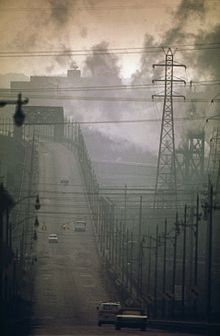
| Part of a series on |
| Economics |
|---|
 |
The tragedy of the commons is a concept which states that if many people enjoy unfettered access to a finite, valuable resource, such as a pasture, they will tend to overuse it and may end up destroying its value altogether. Even if some users exercised voluntary restraint, the other users would merely replace them, the predictable result being a "tragedy" for all. The concept has been widely discussed, and criticised, in economics, ecology and other sciences.
The metaphorical term is the title of a 1968 essay by ecologist Garrett Hardin. The concept itself did not originate with Hardin, but rather extends back to classical antiquity, being discussed by Aristotle.
The principal concern of Hardin's essay was overpopulation of the planet. To prevent the inevitable tragedy (he argued) it was necessary to reject the principle (supposedly enshrined in the Universal Declaration of Human Rights) according to which every family has a right to choose the number of its offspring, and to replace it by "mutual coercion, mutually agreed upon".
Some scholars have argued that over-exploitation of the common resource is by no means inevitable, since the individuals concerned may be able to achieve mutual restraint by consensus. Others have contended that the metaphor is inapposite because its exemplar – unfettered access to common land – did not exist historically, the right to exploit common land being controlled by law. The work of Elinor Ostrom, who received the Nobel Prize in Economics, is seen by some economists as having refuted Hardin's claims.[1] Hardin's views on over-population have been criticised as simplistic[2] and racist. [3]
- ^ Frischmann, Brett; Marciano, Alain; Ramello, Giordano (2019). "Retrospectives: Tragedy of the Commons after 50 Years". Journal of Economic Perspectives. 33 (4): 211–228. doi:10.1257/jep.33.4.211. Retrieved 19 May 2024.
- ^ Hunter, Lori; Prakash, Aseem (2019). "Hardin's oversimplification of population growth". Nature Sustainability. Retrieved 19 May 2024.
- ^ "Garrett Hardin". Southern Poverty Law Center. Retrieved 30 August 2024.